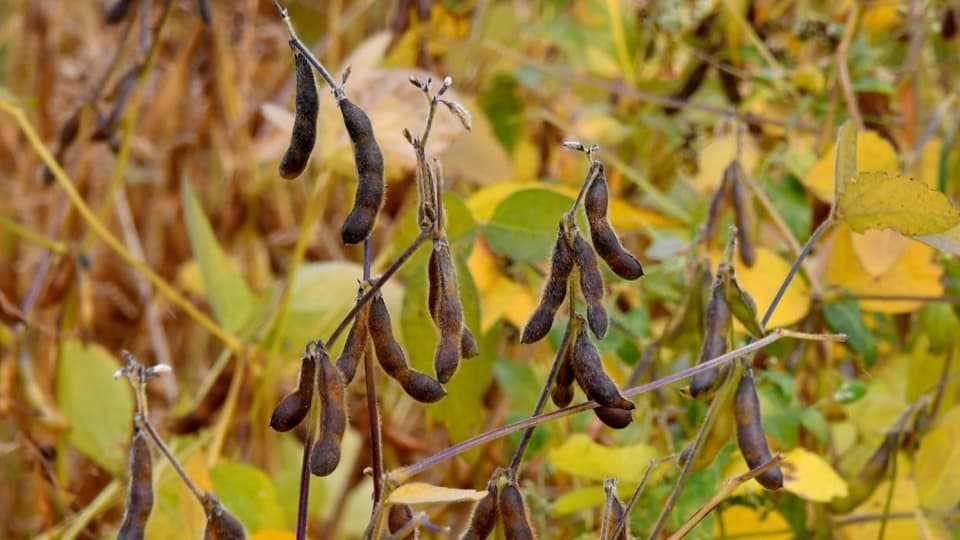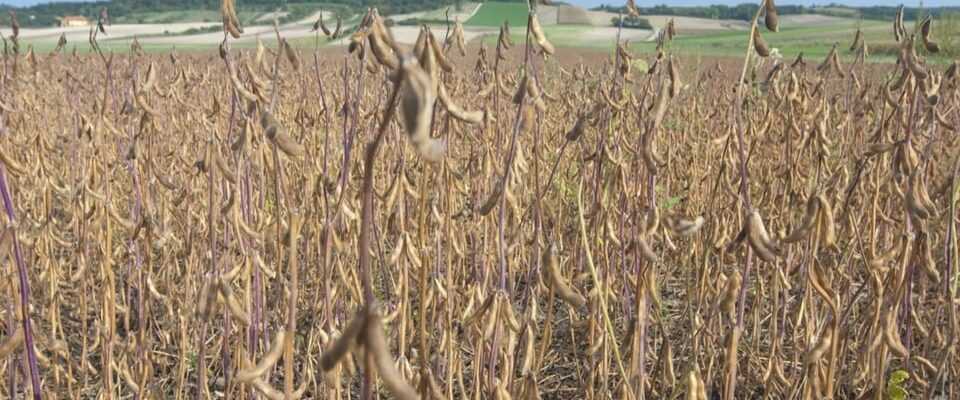contents
A European network for soy is looking for solutions because Ukraine is dependent on agriculture and exports.
The war in Ukraine affects Matthias Krön very deeply. He knows the people and farmers there and stands behind them. Krön is the founder of Donau Soja. The association, headquartered in Vienna, is committed to the sustainable cultivation of soy in Europe.
Donau Soja also has a branch in Ukraine. Despite the adverse conditions, the office in Kyiv is still staffed by three people, says Matthias Krön. That’s why he knows first-hand that despite the war, many fields – especially in the west of the country – are still being cultivated.
Legend:
The members include European animal feed producers and trading companies, but also major Swiss distributors.
imago images
“Most farmers sit in tractors and continue to work.” Not everything is broken, says Krön. “In many – especially rural – areas, life goes on relatively normally. Although with all sorts of difficulties, but still cultivated. Ukraine expects 70 percent of pre-war levels.”
Compared to the cultivation of sunflower seeds or wheat in Ukraine, the production volume of soy is small. But Krön wants to fundamentally change the production of agricultural raw materials in Ukraine with sustainable soy cultivation.

Legend:
20 to 25 percent of European soy production comes from the Ukraine. And that’s where around a quarter of the soybeans imported into Switzerland come from.
key stone
“In the Ukraine, many agricultural practices, but also, for example, pesticides, which have long been banned here, are still common,” says Krön. Soy can influence Ukraine: Ukraine should become European in terms of sustainability. Matthias Krön is convinced that the people he met in the fields and in the agricultural companies wanted to get closer to Western Europe.
Difficulties with export
As a general producer of agricultural commodities, Ukraine is very important. The soy expert calculates that food for up to 600 million people will be produced there.
The big problem in Ukraine at the moment is exporting the vast quantities of kernels, seeds and beans. «Ukraine exported five to seven million tons a month to the EU via the Black Sea; and only small amounts, hundreds of thousands of tons, by rail and truck.»
The sea route is blocked because of the war and mines. At the same time, supply chains around the world have been thrown into disarray as a result of the pandemic and war. A good 15 million tons of agricultural goods are therefore stuck in the Ukraine, Krön calculates. And that also puts the farmers who are currently working in the fields in dire straits.
There is a risk that Ukrainian farmers will not be able to bring in a new harvest because the old harvest has not yet been sold and is still in storage.
“There is a risk that they will not be able to bring in a new harvest because the old harvest has not yet been sold and is still in storage.” Donau Soja therefore wants to support the Ukrainians in being able to export their agricultural goods better.
For example, quick help is needed for specific challenges, such as issuing certificates or customs documents or when looking for trains or trucks.
Krön also collects money in his network to help farms get back on their feet or to procure needed goods such as fertilizers or fuel.
Ukraine needs agriculture
Because agriculture is enormously important for Ukraine. “Agriculture accounts for almost 50 percent of total Ukrainian exports. Supporting them is an important part of helping Ukraine.”
Exporting soya and other raw materials from Ukraine helps on the one hand to counter global bottlenecks in the supply of food and animal feed. The exports also directly support the economy and society of the war-torn country.
